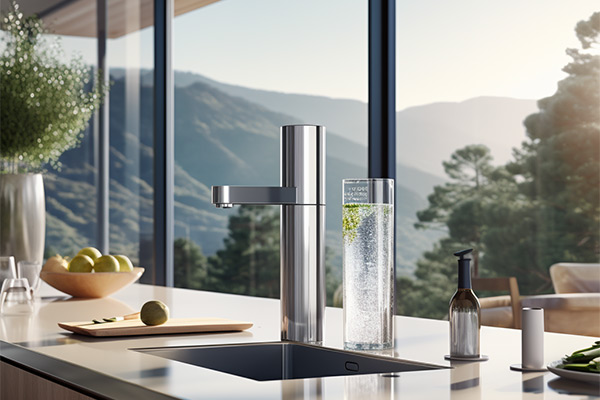
Selecting the best water filtration system for home use largely depends on the specific contaminants you want to remove, the volume of water you need to filter, your budget, and other personal preferences. Here’s a breakdown of the most common types of water filtration systems available for home use:
-
Activated Carbon Filters:
- Uses: Removes organic compounds, chlorine, and improves taste and odor.
- Pros: Affordable, easy to maintain, improves taste.
- Cons: Doesn’t remove heavy metals, fluoride, or microbes.
-
Reverse Osmosis (RO) Systems:
- Uses: Filters out a wide range of contaminants, including heavy metals, fluoride, and many microorganisms.
- Pros: Highly effective at removing many contaminants, improves taste.
- Cons: Wastes some water, requires periodic maintenance and membrane replacement.
-
Distillation Systems:
- Uses: Boils water and collects the vapor, removing most contaminants.
- Pros: Effective against a wide range of contaminants.
- Cons: Energy-intensive, may not remove some volatile organic compounds.
-
Ultraviolet (UV) Systems:
- Uses: Uses UV light to kill bacteria, viruses, and other pathogens.
- Pros: Chemical-free, kills most microorganisms.
- Cons: Doesn’t remove non-biological contaminants, requires electricity.
-
Ion Exchange Systems:
- Uses: Exchanges ions to soften hard water or remove certain contaminants.
- Pros: Effective for water softening and removing specific contaminants.
- Cons: Resin beads need periodic replacement, doesn’t remove all types of contaminants.
-
Ceramic Filters:
- Uses: Physical filtration using a ceramic element.
- Pros: Can filter out bacteria and protozoa, often used in portable water filters.
- Cons: Can become clogged, doesn’t remove viruses or chemicals.
-
Multi-Stage Systems:
- Uses: Combines multiple filtration methods, such as activated carbon, RO, and UV.
- Pros: Comprehensive filtration, removes a wide range of contaminants.
- Cons: More expensive, requires more maintenance.
Considerations When Choosing a System:
- Water Source and Quality: If you’re on a municipal water supply, you can often get a water quality report that details what contaminants are present. If you’re on a well, you might need to get your water tested.
- Installation and Maintenance: Some systems require professional installation or regular maintenance.
- Budget: The cost of the system and the ongoing maintenance costs can vary widely.
- Environmental Impact: Consider the waste produced by the system, like water waste in RO systems or energy use in distillation.
Recommendation:
For many households, a multi-stage system that includes RO, activated carbon, and UV filtration offers a comprehensive solution that addresses a wide range of contaminants. However, always assess your specific needs and local water quality before making a decision.

Filtration Systems By Contaminants
3 Stage Water softener with Fleck 5600 SXT Control Valve
Commercial Water Softeners
Dual Tank On Demand 32,000 x 32,000 Grain Water Softener with Fleck 9100 SXT valve
Home & Office Water Coolers
Vertex PureChill-901S: Premium Sparkling Hydration
Home & Office Water Coolers
Vertex PWC-1800 Bottle-Less 2-Temp Water Cooler
Commercial Reverse Osmosis
AXEON LP-500: Reverse Osmosis System Optimized for Light Commercial Applications